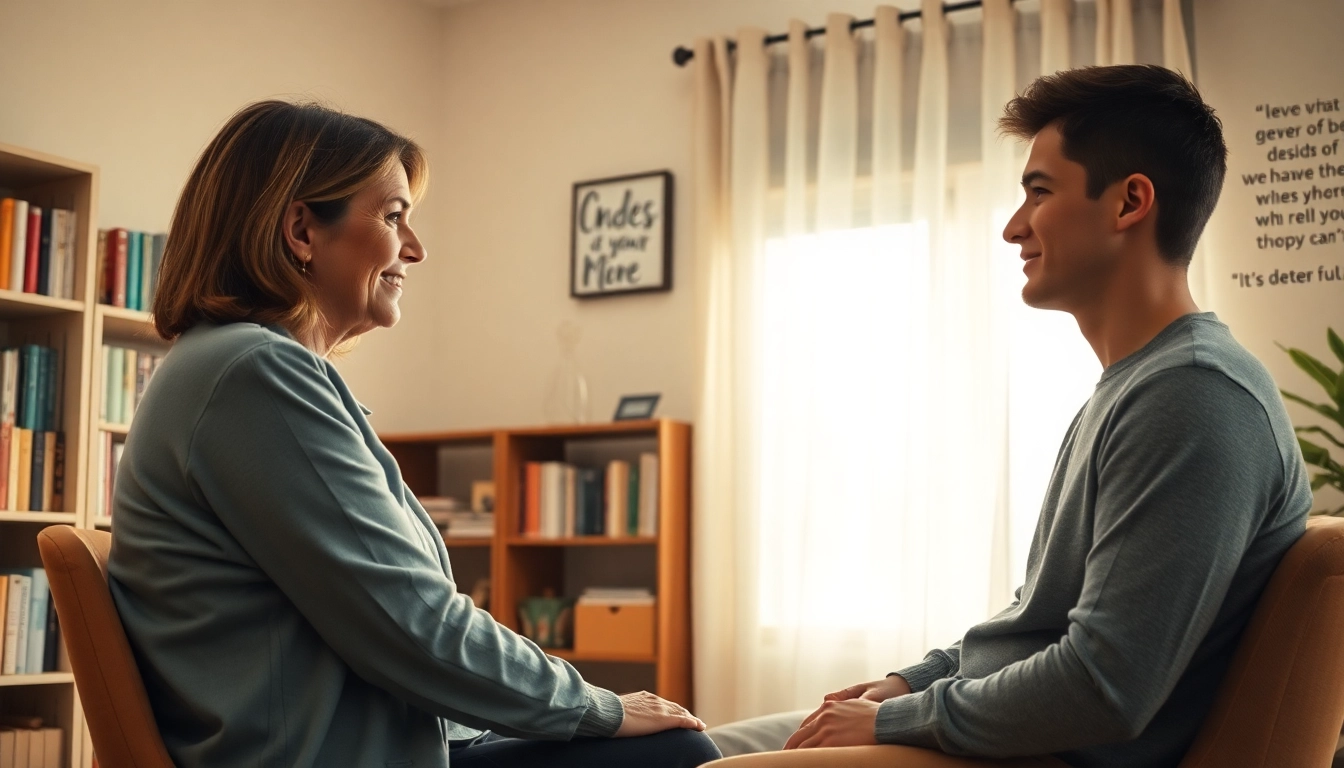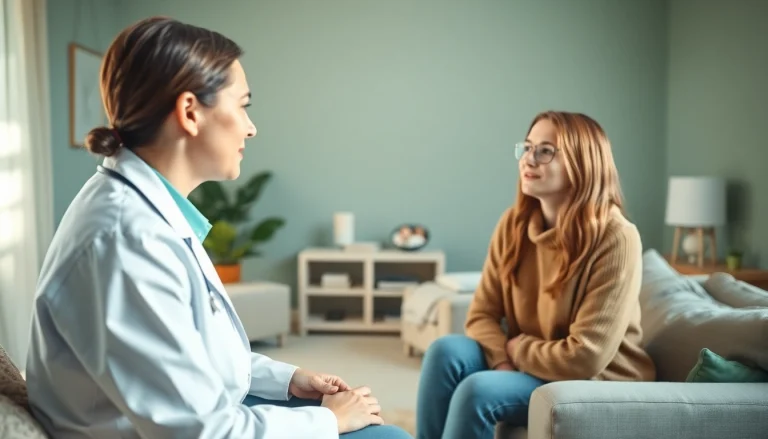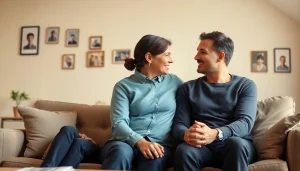What is Attachment Theory?
Attachment theory is a psychological framework that examines the emotional bonds formed between individuals, particularly between children and their caregivers. Its significance lies in understanding how these attachment styles shape interpersonal relationships throughout life. For those seeking assistance in navigating their relational challenges, consulting an attachment theory specialist can be incredibly beneficial.
History and Development of Attachment Theory
Attachment theory originated from the groundbreaking work of John Bowlby in the mid-20th century. Bowlby, a British psychologist, proposed that the bonds formed during early childhood impact emotional and social development. He posited that children are born with an innate ability to form attachments that ensure their survival. Mary Ainsworth, Bowlby’s collaborator, expanded on this theory through empirical research, most notably her “Strange Situation” study, which identified different attachment styles based on children’s reactions to separations and reunions with their caregivers.
Key Concepts of Attachment Theory
Several key concepts define attachment theory, including:
- Secure Base: The primary caregiver serves as a secure base from which a child can explore their environment while feeling safe.
- Internal Working Models: These are mental representations formed by children based on their attachment experiences, influencing how they perceive relationships.
- Attachment Styles: These styles, influenced by the security of the caregiver when the child is young, dictate adult relational patterns.
Types of Attachment Styles
Attachment styles are generally categorized into four main types:
- Secure Attachment: Characterized by trust and comfort in relationships, these individuals feel secure and valued.
- Anxious Attachment: This style involves a preoccupation with relationships, often fearing rejection and being overly dependent on others for emotional support.
- Avoidant Attachment: Individuals with this style tend to maintain distance in relationships, often suppressing their feelings and avoiding intimacy.
- Disorganized Attachment: Considered the least stable, this attachment style results from inconsistent caregiving and can lead to confusion in relationships.
Role of an Attachment Theory Specialist
An attachment theory specialist plays a pivotal role in helping individuals understand the impact of their attachment styles on their relationships and emotional well-being.
Qualifications and Training Required
A qualified attachment theory specialist typically holds advanced degrees in psychology, counseling, or social work. Additionally, they should have completed specialized training in attachment theory and its therapeutic applications. These professionals often engage in continual education to stay updated on advances in the field and receive supervision or consultation to hone their skills.
Methods Used by an Attachment Theory Specialist
Attachment theory specialists employ various methods in therapy, including:
- Cognitive Behavioral Therapy (CBT): This approach addresses negative thought patterns related to attachment and promotes healthier relational habits.
- Emotionally Focused Therapy (EFT): EFT helps couples understand their emotional responses and foster secure attachments through enhanced emotional connection.
- Play Therapy: For children, play therapy can be used to explore attachment issues in a safe and engaging manner.
Common Challenges Addressed
Attachment theory specialists tackle various challenges, including:
- Relationship conflicts arising from differing attachment styles.
- Issues of trust and intimacy in romantic partnerships.
- Parenting challenges related to nurturing secure attachments.
- Coping with the emotional aftermath of trauma or loss in relationships.
Understanding Different Attachment Styles
To foster healthier relationships, it’s essential to understand the nuances of different attachment styles.
Characteristics of Secure Attachment
Individuals with secure attachment typically exhibit the following traits:
- Confidence in expressing emotions and seeking support.
- Approachable and responsive, encouraging open communication.
- Ability to balance independence with closeness, fostering healthy boundaries.
Understanding Anxious Attachment
People with anxious attachment often display:
- High levels of emotional reactivity and fear of abandonment.
- Clinginess or over-dependence on partners for emotional validation.
- Tendency to misinterpret partner cues, often resulting in conflicts.
Addressing Avoidant Attachment in Therapy
Those with avoidant attachment may struggle with:
- Difficulty in recognizing and expressing emotions.
- Fear of dependence leading to distance in relationships.
- A tendency to shut down during conflicts, avoiding emotional engagement.
Benefits of Attachment-Based Therapy
Engaging with an attachment theory specialist can yield numerous benefits, particularly in enhancing personal relationships.
Improving Relationships through Therapy
Attachment-based therapy helps individuals and couples:
- Strengthen their connections by fostering secure attachments.
- Improve communication skills, which leads to a deeper understanding of partners’ needs.
- Develop tools to manage conflicts constructively, reducing emotional volatility.
Fostering Emotional Regulation and Resilience
Therapy centered around attachment theory assists clients in:
- Recognizing and regulating emotional responses that stem from attachment-related stress.
- Building resilience against emotional distress through coping strategies.
- Enhancing self-awareness, which promotes healthier interactions with others.
Addressing Trauma and Psychological Issues
Specialists help clients recover from relational trauma, enhancing their ability to form healthy attachments. This includes:
- Identifying and processing past traumas to guard against their impact on current relationships.
- Employing targeted interventions to heal attachment wounds, enhancing overall emotional health.
- Facilitating the development of positive attachment patterns that support beneficial relationships.
Finding an Attachment Theory Specialist
Finding a suitable attachment theory specialist is crucial for effective therapeutic support.
Locating Qualified Therapists Near You
Individuals seeking attachment therapy can start by:
- Utilizing therapist directories that filter by specialization, such as attachment theory.
- Consulting local mental health organizations or community centers for referrals.
- Asking for recommendations from healthcare providers or support groups focused on attachment-related issues.
What to Expect in Your First Session
The initial therapy session generally involves:
- Discussion of personal history and attachment experiences to establish context.
- Assessment of current relational dynamics and emotional state.
- Setting therapy goals collaboratively to align expectations and outcomes.
Questions to Ask Your Therapist
Before committing to therapy, consider asking the following questions:
- What is your experience with attachment-based therapy?
- How do you typically approach therapy for clients with different attachment styles?
- Can you explain your therapy methods and what I can expect during sessions?








